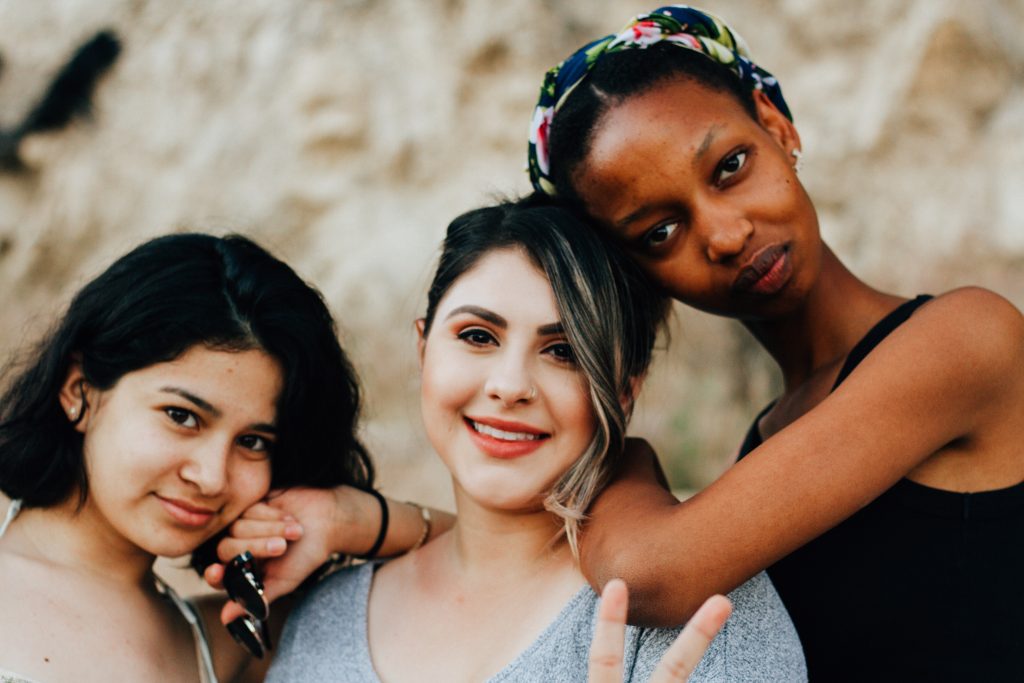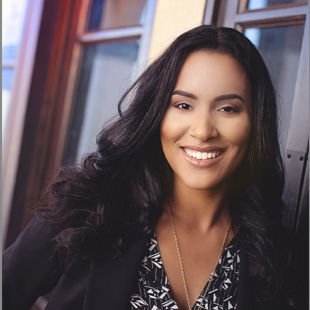
We’ve made progress! And yet there’s still work to do when it comes to POC seeking mental health services. Check out my latest feature published on The Mighty!
What some people might not realize is race often plays a major role in your mental health.
For people of color (POC), mental health struggles are multilayered, often affected by microaggressions, racism and oppression they can face in their daily lives. What’s even more damaging is the fact that the stigma surrounding mental health in POC spaces makes it difficult to navigate mental illnesses with support. That’s why “harmless” comments people make to POC struggling with their mental health can really add insult to injury.
Comments like “you’re a strong black woman,” “pray on it” or “our people don’t do therapy” can be particularly damaging to people of color who wish to seek help for their mental health issues. In the wake of these perceptions, people of color are often left invalidated and isolated. Some of these “harmless” comments are things licensed clinical social worker Tamika Lewis knows all too well. She told The Mighty,
There are two words I have intentionally eliminated from my vocabulary; the words “crazy” and “strong.” Women of color are tired of feeling like they’re “crazy.” We are socialized to power through, often winded by stress and high demands. We feel tired and secretly long for compassion, yet everywhere we turn, from family members to media, we are reminded that vulnerability is weakness, that the need to “be strong” is critical to our survival.
One of my clients who endured years of microaggressions in the workplace [said, “I’m tired of being strong”]. I watched her unravel during a recent session, unpacking what seemed to be years of emotion. I was reminded of the tremendous need for more spaces where POC can let go. Where their experiences can be validated and not written off as “crazy.”
To open up the discussion about what “harmless” comments POC hear, we turned to our mental health community. Below you can read what they had to say. What “harmless” comments have you heard about your mental health? Let us know in the comments below.
Here’s what our community shared with us:
“I had multiple people say, ‘Depression/anxiety is for white kids. Stop acting white and suck it up.’” — TJ W.
“I never get ‘harmless’ ones, mine are always straight out wrong. Things like, ‘Bipolar is such a white girl thing.’” — Sunshine M.
“I don’t know how you got ___ no one in our family has it. You don’t need therapy.” — Christina W.
“Being told to pray about it or ‘Give it to God.’ Prayer may be an effective tool for some, but for me, I found refuge in copious amounts of therapy, which isn’t popular in my black family.” — Khaliah
“Definitely family suggesting I just needed to pray it better. Prayer has its part for some. Medication and therapy has its vital part for others.” — AG B.
“Our people seek God, not therapy. Therapy is the devil.” — Ann R.
“It is well-researched that mental health needs of POCs aren’t always taken as seriously. Particularly the treatment of black men. Black men globally are still racistly viewed as being ‘violent’ or ‘aggressive.’ Episodes are then not viewed as a mental health crisis, instead criminalized with deadly consequences.” — AG B.
“‘Your people are strong’ or any variant of that. Seemingly a compliment and meant well, but it also condescends me.” — Christopher A.
“I had non-colored friends say, ‘I wasn’t expecting that. I just assumed black people were all tough.’ It all just makes me feel even worse for being depressed. When I was younger, and even into my late 20s, I had to repress any feelings of anxiety or depression because I would instantly be hit with one of those comments or would hear it in the back of my head.” — TJ W.
“I’m half-white, half-Korean. I don’t get a lot because I pass as white even though I do look a little Asian. But I once got a comment about how it’s surprising someone raised by an ‘Asian tiger mom’ could get anxiety. Yeah, I don’t get it either.” — Lee B.
“[I’m] sick of the ‘Strong Black Woman’ narrative. Am I not allowed to be soft? To be vulnerable? To be held in someone’s arms?” — Tracey S.
“I’m a Black woman who was just diagnosed with Bipolar 1 (within the last 2 weeks) after over 10 years of being misdiagnosed and outright dismissed, including a doctor who said to ‘just tough it out with your mood swings, since you’re a single mom with stress like everyone else in your position.’ The stereotype of the Strong Black Woman who endures all with no help is incredibly harmful.” — DeShon M.
“Family members and older people of color have said, ‘You have no reason to be depressed. We and your ancestors went through stuff that is way worse, so get over it.’” — TJ W.
“The best part was when I was in the hospital a few years back, and my family all came and said how much they loved me and then proceeded to stop inviting me to any family functions and pretended I didn’t exist anymore. Black families are the best when it comes to mental health…” — TJ W.
“I am a Black woman. I am tired of the shame-based stigmas within my community surrounding mental health. I have bipolar 1, and I had to seek out therapy on my own. I had zero support from my family. They knew I had behavioral problems, however, they were too afraid of their social status and kept me isolated.” — S.
“Saying transgenerational trauma isn’t a thing. It hurts because there was a stolen generation and it still affects people today. No one thinks it was.” — Natasha R.
“‘You need to stop making a big deal out of everything, get over it.’ Sometimes even the littlest things can be a big deal to someone with anxiety. It makes me feel guilty and frustrated because they don’t understand I can’t help it sometimes. I do my best to not let my anxiety affect me but sometimes it just does even if the reason seems ridiculous.” — Kaylala H.
As you can see, these seemingly ‘harmless’ comments can actually feel quite harmful to the person you’re saying them to. If you are struggling to feel support during your time of need, you’re not alone and your feelings and experiences are valid — no matter your color. Unfortunately, POC experience this very commonly due to mental health issues being shrouded in shame and stigma, especially by older generations.
If you are in need of support on your journey, check out some of the resources down below.

